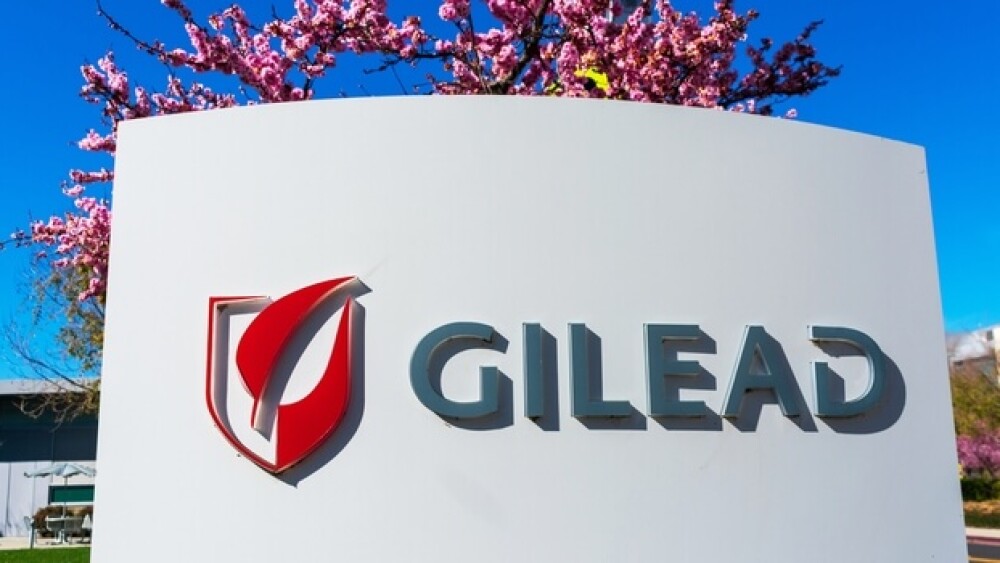Gilead is projecting remdesivir sales of about $2.825 billion alone for 2020.
Michael Vi/Shutterstock
Gilead Sciences’ Veklury, which is better known by its scientific name remdesivir, is the only antiviral drug currently approved to treat COVID-19. Despite some controversy over its effectiveness, it is bolstering the company’s bottom line and Gilead recently updated its 2020 guidance to reflect that.
Key was the company raising its total product forecast from $24.30 billion to $24.35 billion, largely a reflection of remdesivir sales. And with COVID-19 cases surging in the U.S., and expected to rise again in a post-holiday bump, the company is expecting increasing sales. But they noted that their HIV drug, Biktarvy, has also had increased sales.
Gilead is projecting remdesivir sales of about $2.825 billion alone for 2020. The uptake of Biktarvy has been good, but has been partially offset by loss of patent protection in the U.S. for Truvada and how the COVID-19 pandemic has affected the company’s pre-exposure prophylaxis (PrEP) franchise and chronic hepatitis C virus franchise.
Of the change in guidance, Gilead’s chairman and chief executive officer, Daniel O’Day, said in a conference call, “The reason we did that this year is because there is a significant difference between our October guidance and where we are likely to end the year. We’re still finalizing all the numbers that we’ll announce at the final year-end results in early February, and of course of 2021 guidance. But we thought with the significant difference, particularly with remdesivir, we’re clearly significantly above the top end of our range and it was important to update you on that appropriately.”
Gilead projects adjusted earnings for 2020 in the range of $6.98 to $7.08 per share, an increase from the earlier forecast of $6.25 to $6.60 per share. They also noted changes in the R&D expenses, which in October were mid-teens percentage growth, but with the updated forecast, approximately 20% growth. Operating income is also up from a range of $10.700 billion to $11.200 billion to $11.650 billion to $11.750 billion.
O’Day said, “One thing that we’ve learned this year is don’t try to predict the pandemic. It’s challenging and I think what’s important to note is that hospitalizations increased by four-folds since October. I know we at Gilead are proud that we’re playing a role in that so much so that one in two patients hospitalized are now treated with Veklury in the United States. That’s really significant, up from around 30% in October to around 50% to 60% now I think it speaks volumes to the role that Veklury is playing during this pandemic.”
This may be a case of taking advantage of sales now, because they are likely to drop significant as the pandemic gets under control due to the rollout of COVID-19 vaccines, such as those by Pfizer-BioNTech, Moderna, and in Europe, AstraZeneca-University of Oxford.
Although Gilead’s forte has always been viral diseases, such as HIV and hepatitis C, followed by COVID-19, recent efforts have created a presence in the oncology space. Those products include Trodelvy, Yescarta and Tecartus.
O’Day said, “When I look at what’s been put together over the past year or 18 months, this is a real world-class oncology portfolio that we have now. It’s characterized by a fundamental antibody drug conjugate that goes across multiple disease states, complemented by first testing class type mechanisms in immuno-oncology, cell therapy, and it’s also complemented by a variety of options that allow us to de-risk some of this first-in-class, best-in-class immuno-oncology portfolio by following the data readouts. Part of the beauty of our strategy is we can opt in as we see the data, accordingly.”
Featured Jobs on BioSpace





